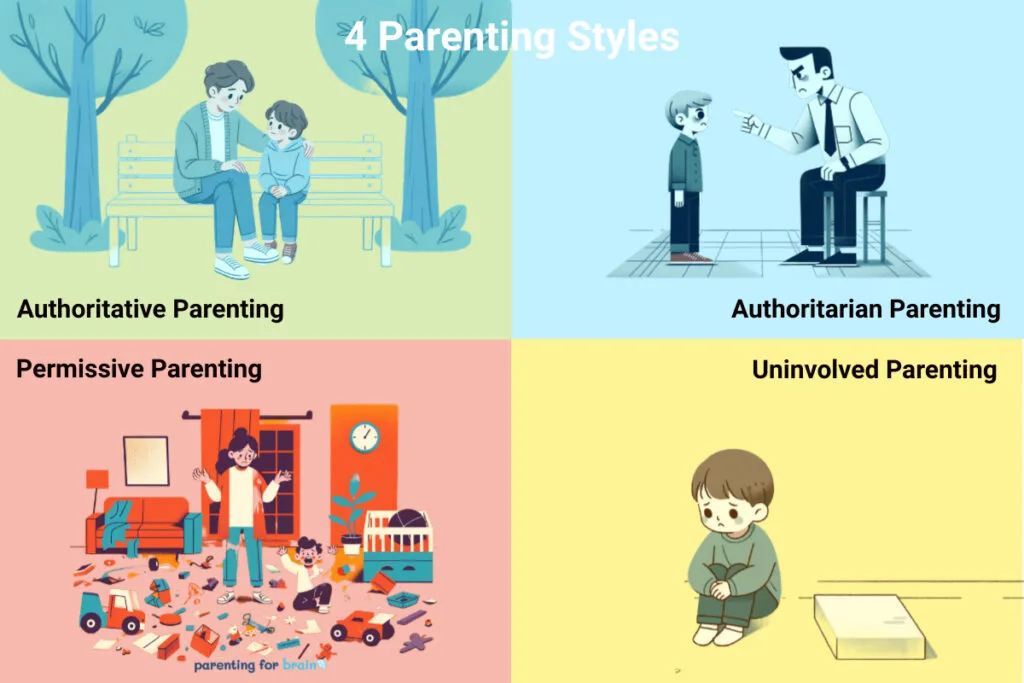Understanding Their Effects on Children
Parenting is a journey filled with decisions, challenges, and countless rewards. One of the most significant factors that shape a child’s upbringing is the parenting style adopted by their caregivers. Understanding the various parenting www.parentings.us/ styles and their impact on children can help parents navigate the complexities of raising happy, healthy, and well-adjusted individuals.
1. Authoritative Parenting Style
Authoritative parenting is characterized by warmth, responsiveness, and clear expectations. Parents set reasonable limits while also encouraging independence and individuality in their children. This approach fosters open communication and mutual respect within the family dynamic.
Benefits of Authoritative Parenting:
- Positive self-esteem: Children raised in authoritative households often develop strong self-esteem and confidence.
- Academic success: Research suggests that children of authoritative parents tend to perform well academically.
- Healthy social skills: They learn to navigate social interactions effectively and develop empathy towards others.
Challenges:
- Balancing autonomy: Parents may struggle to find the right balance between granting autonomy and maintaining authority.
- Time-consuming: This parenting style requires consistent effort and active involvement, which can be demanding for busy parents.
2. Authoritarian Parenting Style
In contrast, authoritarian parenting is characterized by strict rules, high demands, and low levels of warmth and responsiveness. Parents prioritize obedience and conformity, often employing punishment as a means of control.
Effects on Children:
- Lack of autonomy: Children raised in authoritarian households may struggle with decision-making and assertiveness.
- Rebellion: Strict rules without explanation may lead to resentment and rebellion in adolescence.
- Poor communication: The hierarchical nature of authoritarian parenting may hinder open communication between parents and children.
3. Permissive Parenting Style
Permissive parenting is characterized by warmth and indulgence but lacks clear boundaries and expectations. Parents are lenient and hesitant to enforce rules, often prioritizing their children’s happiness over discipline.
Impact on Children:
- Entitlement: Children raised in permissive households may develop a sense of entitlement and lack of respect for authority.
- Poor self-regulation: Without clear boundaries, children may struggle with self-discipline and impulse control.
- Difficulty with structure: Lack of structure may lead to difficulties in school and other structured environments.
4. Uninvolved Parenting Style
Uninvolved parenting is characterized by neglect and lack of emotional support. Parents may be physically present but emotionally detached, providing minimal guidance or involvement in their children’s lives.
Consequences:
- Emotional issues: Children raised in uninvolved households may experience feelings of abandonment and low self-worth.
- Academic difficulties: Lack of parental involvement can hinder academic performance and motivation.
- Risk behaviors: Without proper guidance, children may engage in risky behaviors such as substance abuse and delinquency.
5. Comparison of Different Parenting Styles
Each parenting style has its pros and cons, and the impact on children can vary significantly. While authoritative parenting is associated with positive outcomes, such as academic success and emotional well-being, authoritarian, permissive, and uninvolved parenting styles may have detrimental effects on children’s development.
6. How Parenting Styles Affect Children’s Behavior
Parenting styles play a crucial role in shaping children’s behavior and attitudes towards themselves and others. Authoritative parenting promotes healthy emotional regulation and social skills, while authoritarian, permissive, and uninvolved parenting styles may contribute to behavioral issues and interpersonal difficulties.
7. Influence of Cultural Factors on Parenting Styles
Parenting styles are influenced by cultural norms, beliefs, and values. Cultural variations in parenting practices can be observed worldwide, highlighting the importance of understanding cultural context when examining parenting styles.
8. Adaptive Parenting Strategies
Effective parenting involves adapting strategies to meet the evolving needs of children. Flexibility and open communication are essential for fostering a nurturing and supportive environment for healthy child development.
9. Finding the Right Balance
Finding the right balance between nurturing and discipline is crucial for promoting positive parent-child relationships and fostering independence in children. Parents should strive to maintain consistency while also allowing room for growth and exploration.
10. Impact of Parenting Styles on Parent-Child Relationship
Parenting styles significantly influence the quality of the parent-child relationship. Open communication, mutual respect, and trust are essential components of a healthy and supportive family dynamic.
11. Importance of Consistency in Parenting
Consistency in parenting is vital for establishing clear expectations and boundaries. Consistent discipline helps children understand the consequences of their actions and promotes accountability and responsibility.
12. The Role of Parenting Styles in Child Development
Parenting styles play a crucial role in shaping various aspects of child development, including cognitive, emotional, and social development. A nurturing and supportive parenting style can lay the foundation for lifelong success and well-being.
13. Addressing Common Parenting Challenges
Parenting presents numerous challenges, from discipline issues to navigating differences in parenting styles within a family. Open communication, flexibility, and a willingness to seek support can help parents overcome these challenges effectively.
14. Conclusion
In conclusion, understanding the different parenting styles and their impact on children is essential for fostering healthy parent-child relationships and promoting positive child development. While each parenting style has its strengths and weaknesses, adopting an authoritative approach characterized by warmth, responsiveness, and clear expectations is often associated with the best outcomes for children.










